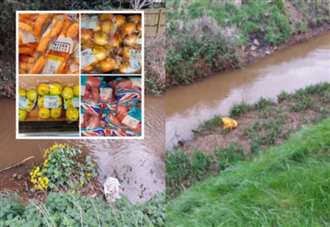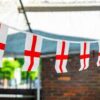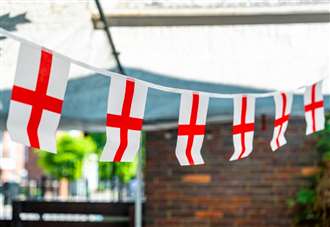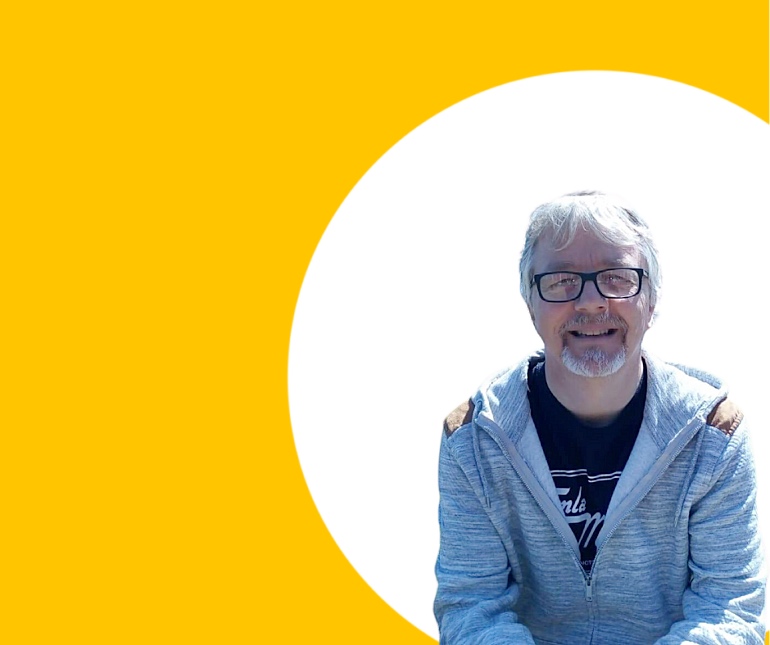-
 play_arrow
play_arrow
Kl 1 Radio Local radio for west Norfolk
-
 play_arrow
play_arrow
KL DISCO KL Disco Playing Disco Music from the 70's onwards.24/7
-
 play_arrow
play_arrow
KL COUNTRY KL COUNTRY Playing New and Classic Country Music 24/7
-
 play_arrow
play_arrow
KL ROX KL ROX The best of New and Classic Rock.24/7
-
 play_arrow
play_arrow
KL SUMMER Summer Vibes 24/7 from KL1 Radio across West Norfolk
-
 play_arrow
play_arrow
KL CLASSICAL Your Symphony Starts Here
-
 play_arrow
play_arrow
KL CHILL Just Chill!
-
 play_arrow
play_arrow
KL POP The Best POP Hits all day Long!
-
 play_arrow
play_arrow
KL XTRA KL XTRA
music_note
‘Still a long way to go’: Climate group raises concerns about amount of single-use plastic on Earth Day


A West Norfolk climate group has highlighted concerns about the amount of single-use plastics used in supermarkets.This year, Earth Day (today) is encouraging people around the world to call for a 60% reduction in plastic production by 2040.Members of Lynn’s KLimate Concern and Friends of the Earth took part in “the big plastic count” this year for Earth Day, which challenged people to count up how many single-use plastics they go through.
Research conducted by the climate groups say that plastic waste has been found all over the world, in the highest of mountains to the deepest of oceans – and even in human bodies.The group has said that most of it is single-use, like food packaging, plastics from takeaways and plastic drinks bottles. Sarah, a member of KLimate Concern said: “More than three-quarters of the plastic I put in my green or black bins is food and drink packaging.”
Another member, Richard, added: “72% of my plastic waste came from food and drink packaging.”The Big Plastic Count stated that: “If supermarkets reduced the amount of fruit and vegetable wrapping, it would significantly cut single-use plastic waste”.One member, Julie, has been working on reducing her plastic use for the past 12 months, and has reduced it by 1,708 pieces.She believes supermarkets should be doing more to cut back on plastic waste and said: “I suppose this could be described as an improvement but there is still a long way to go, particularly with supermarkets.”
KLimate Concern and Friends of the Earth have urged West Norfolk residents to try and find fruit and veg that isn’t wrapped in plastic and ask supermarkets to do their bit. They have also urged people to refill water bottles and said that research shows tap water is just as healthy as bottled water.Research also shows that every week, nearly two billion separate pieces of plastic are thrown away by UK households.
This is the “shocking” finding of The Big Plastics Count which asked people to keep a record of the plastic that they binned in one week. KLimate Concern’s research has shown that 64% of plastic binned in the UK is burned in incinerators, 12% goes into landfill and 11% is exported.A spokesperson from KLimate Concern said: “Plastic waste that is incinerated releases carbon and pollutants that harm our health and contribute to climate change – more summer droughts, intense storms and winter floods. “So if we use less plastic and recycle more we are not only reducing pollution, we are helping to slow down climate change.“Plastic waste in the UK’s ‘engineered’ landfills will last for many generations. Plastic doesn’t decompose, it degrades into smaller and smaller bits of plastic. In open dumps, some plastics will leach toxic chemicals which end up in groundwater and rivers. “Some of the plastic waste that the UK exports for recycling has been found in open dumps in poorer countries. And some plastic waste doesn’t even get as far as our bins: plastic litter harms our soils and rivers, wildlife and farm animals, and our health.” KLimate concern has also shared advice in putting rubbish in the correct bin.The spokesperson added: “Plastic bottles and plastic pots, tubs and trays can be recycled if you put them in your green bin or clear recycling sack, along with paper and cardboard, aluminium and steel cans, glass bottles and jars.”Dave Newell, operations director of Norfolk Environmental Waste Services Ltd, said: “‘The Production Operatives at the Materials Recovery Facility (MRF), near Norwich have to regularly remove dirty and dangerous items that people have put in their recycling.“This includes half a million dirty nappies per annum, dog waste and hazardous lithium batteries and nitrous oxide canisters.”The group has also stressed that recyclable items should be cleaned properly to avoid contamination.Jenny, a member of Fenland and West Norfolk Friends of the Earth, said: “One of my friends doesn’t wash yoghurt pots before putting them in the bin. I’ve tried to tell her they have to be clean to be recycled.”Between April 23-29 , governments will come together in Canada to develop an international treaty to end plastic pollution.The spokesperson added: “ Make sure our MP knows we care. If enough of us write to our MPs, they are more likely to do something about all the unnecessary plastic we are forced to buy and throw away.”
Similar posts
Upcoming shows

Frank Hopping – Real Music Society
6:00 pm - 8:00 pm

Mike Bentley – The Theatre Show
8:00 pm - 10:00 pm

Jonathan Charles – Vinyl Countdown
10:00 pm - 11:00 pm

Night Trax
12:00 am - 7:00 am

Paul Baker – KL1 Breakfast
7:00 am - 10:00 am
-

Arsenal crush 10 man Ipswich to delay Liverpools Premier League title party

A dry and pleasant Easter Sunday for much of the UK will be followed by rain

Husband watched in horror as van killed wife on golf course after police chase

The Childrens Commissioner says parents should stop trying to be their childs friend over phone usage

From food to footie: Tackle the ultimate England quiz
Message Us
Copyright The Mediasite UK - 2025



